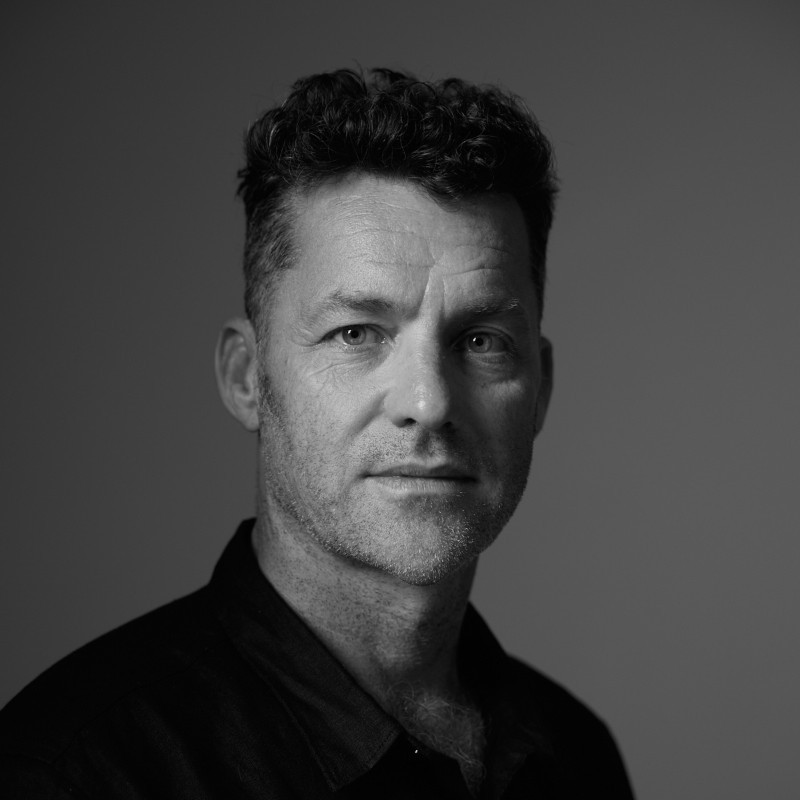
ASKING FOR A FRIEND
How do I keep up with AI and technology?
ASKING FOR A FRIEND - QUESTION
Staying ahead of the curve with AI and new tech can feel like trying to herd cats, but Simon Lee, Chief Creative Officer at The Hallway, makes a good case for why it’s worth the effort. He explores how we can keep up with fast-moving tools without losing sight of what makes us human — imagination, cultural curiosity, and that all-important creative taste. He talks about why understanding your craft inside out matters if you want to get the best out of AI, and how tech should be a learning aid, not a crutch. At the end of the day, the creatives who’ll thrive are the ones who blend technical know-how with those deeply human skills no machine can replicate.
If the pace of AI has you feeling like you’re sprinting to stand still, you’re definitely not alone. In the creative industry, it can feel like every week brings a new tool, a new workflow, or a new fear that you’re falling behind if you’re not constantly learning something new. So how do you keep up — without burning out?
Simon Lee, Chief Creative Officer and joint owner of The Hallway, and Andy Wright, CEO of Streamtime and Founder of Never Not Creative, tackled this exact question. Their advice? Yes, stay curious. But don’t forget the human side that makes creativity truly powerful.
Yes, stay updated — but not at the expense of life experience
First up, Simon’s clear on this: "It is 100% but not at the expense of the life experience that I was talking about earlier."
The tech matters, of course. But your value isn’t just in the tools you know — it’s in the perspective you bring to them. "The tech is only as good as the person who's using it and prompting it," Simon says. Your taste, judgement, and experience? Still irreplaceable.
Focus on three essential pillars
So what should you be building alongside your AI skills? Simon breaks it down into three simple but vital areas:
Taste and sensibility: "I think that's something that you want to be refining all of the time so you've got a distinctive sense of a distinctive sensibility." The better your eye (or ear, or gut), the better you’ll be at guiding the tech.
Cultural knowledge: Know your craft. "If you're prompting midjourney for example, your knowledge of lenses and techniques... go and use a camera with a load of different lenses so that you know ultimately what something looks like through 35 mil lens versus a 16." Same goes for film: "Do you know what a tracking shot is, what a pan is, what a tilt... and that comes from watching film, studying film."
Imagination: The one thing AI can’t fake. "The thing the AI still can't do and arguably won't ever do is genuine original thought." Simon sums it up perfectly: "We're forgetting the brilliance of the human mind... you combine the brilliance of the human mind, that original thinking, with the technology and that's what's amazing."
Know your craft — it makes the prompts better
Simon’s right: you get out what you put in. "You have to know what you're looking for and you have to have some knowledge of the art and craft to be able to get the best out of AI." The better you know your tools and your craft, the better your AI results will be.
Rethink what skills are valuable
There’s a silver lining here. AI is changing what “useful” looks like. Simon shares an example: "A decade ago as a parent, even a creative parent, you might have looked at that and gone 'God that's great darling but wow how's it going to get you a job?' And actually my wife and I found ourselves going... that in this context that's absolutely brilliant because if you're sitting creating work... using an AI with the knowledge of everything that's happened throughout the history of art, you're in an extraordinary position."
Deep knowledge and context are superpowers.
Use AI as a learning tool, not just an answer machine
Andy adds a brilliant tip: "Whenever the prompts are going in, ask the AI to respond in the style of a Socratic mentor... so what he gets back is questions and he has to get to the answer and the AI guides him to the answer rather than just gives him it straight away."
Treat the tech like a teacher, not a shortcut.
The short answer: yes, but be strategic
Simon sums it up best: "Focus on staying up to date and staying upskilled with the technology and in parallel continue to develop imagination, culture and your sort of taste or sensibility."
So don’t burn yourself out trying to chase every shiny new tool. Stay curious about the capabilities. But invest just as much in your imagination, your taste, and your craft — the things that make your work feel like yours.
When it comes down to it, the best creative work will always be human at its core — no matter how clever the tech gets.
our guests
Industry Leader

Simon Lee
Enigma
Mental Health Expert

Aimee Davies
The Hey Mate Project
Host

